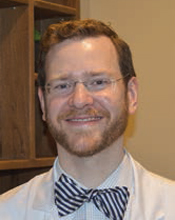By Dr. John Vanderloo
The Lost Art of Relational Medicine:
Why You Need a Primary Care Provider
Growing up, I watched my father practice family medicine. First, he practiced out of our house in upstate New York and then later from his clinic in Columbia, MS. His patients would bring him fresh vegetables, artwork, and other handmade goods mostly in appreciation (but sometimes as payment) for his services. They trusted him knowing he would take the time to listen to their concerns and find the best remedies possible for their ailments.
He had a fond saying: “I try to see the face of Jesus in every patient.” This affected every aspect of his practice. My father knew the joy that comes from taking care of others and treated his patients in their homes, the hospital, nursing homes, and his clinic. I saw firsthand the benefits of a strong patient-physician relationship, and now I apply those same values today in my own practice.
Primary care physicians like to say that health is not just the absence of disease but a condition of the person as a whole. Put another way, good primary care considers patients and their health by treating immediate medical problems, long-term concerns, and preventing future health issues.
 For those reasons, having a good relationship with a primary care provider is so important. As a family physician, I feel that knowing my patients personally is critical to delivering good care and is the best way to prevent more serious medical problems. Knowing my patients when they are healthy can help me recognize subtle changes that may be early signs of illness.
For those reasons, having a good relationship with a primary care provider is so important. As a family physician, I feel that knowing my patients personally is critical to delivering good care and is the best way to prevent more serious medical problems. Knowing my patients when they are healthy can help me recognize subtle changes that may be early signs of illness.
Additionally, by understanding each patient’s situation, I can help them make good decisions about their health while navigating a confusing system of specialists and hospital-based services. You could think of primary care physicians as quarterbacks of healthcare teams: the leaders responsible for knowing your needs, communicating with other providers, and then calling the most appropriate plays to reach your healthcare goals.
Coordinating care with multiple providers is an integral part of treating the whole patient. A primary care physician can ensure that these providers are in harmony with their recommended treatments so that conflicts are minimized. This coordination of care can be especially valuable when discussing end-of-life decisions with family members. Having a physician with a longstanding relationship with the patient can help ease the burden of difficult decisions.
Building a good relationship and understanding my patient’s needs takes time, but the return on that investment is worth it. My father practiced with the patient’s best interests at heart every day and 57 years later I’m applying that same principle at our clinic. We strive to keep the patient at the center of everything we do.
In making those values central to the way that we operate our clinic, our patients get to experience what medicine is meant to be. They become the priority and we have the time to help them better understand their path to wellness. Our patients appreciate the direct relationship with their physician, and access to care provided when and where they need it. And we love it when they express that appreciation, especially with a dozen free-range eggs or a homemade cake. It is a win-win for all, and I think my Dad would be proud.

Dr. John Vanderloo is a primary care physician practicing family medicine at NewCare MD in Madison.